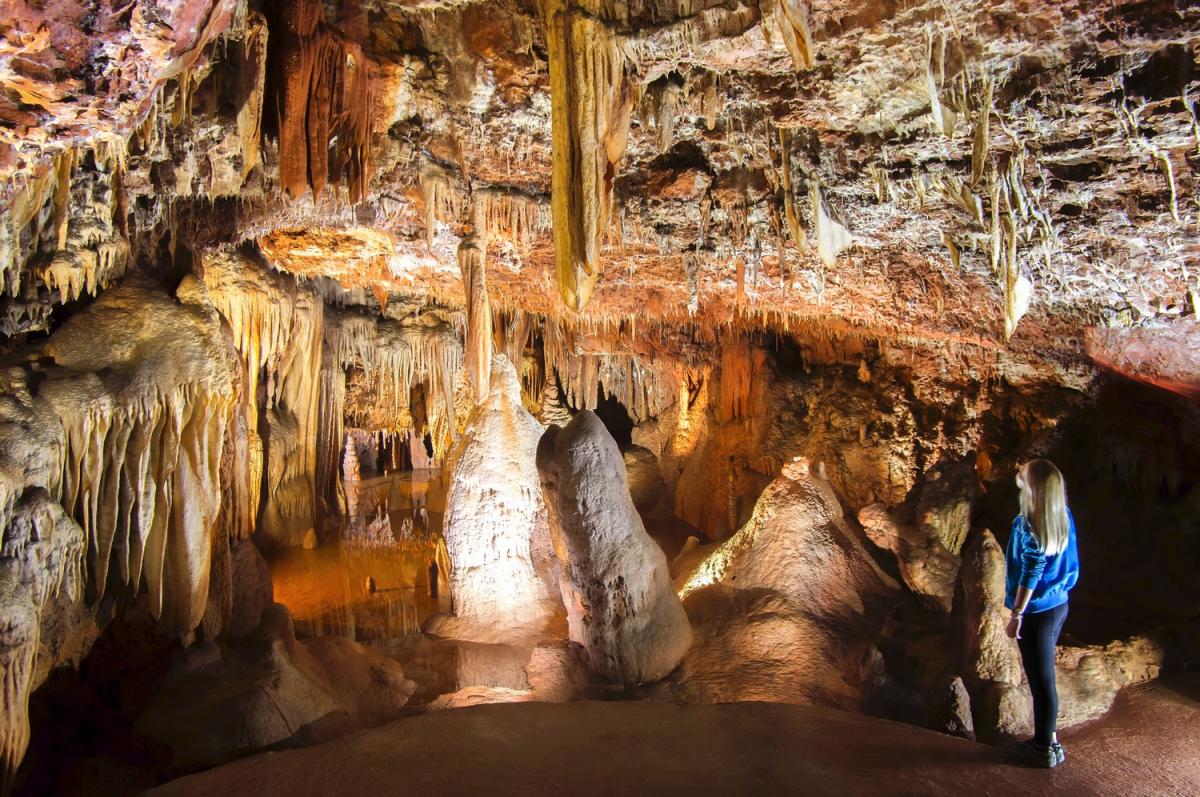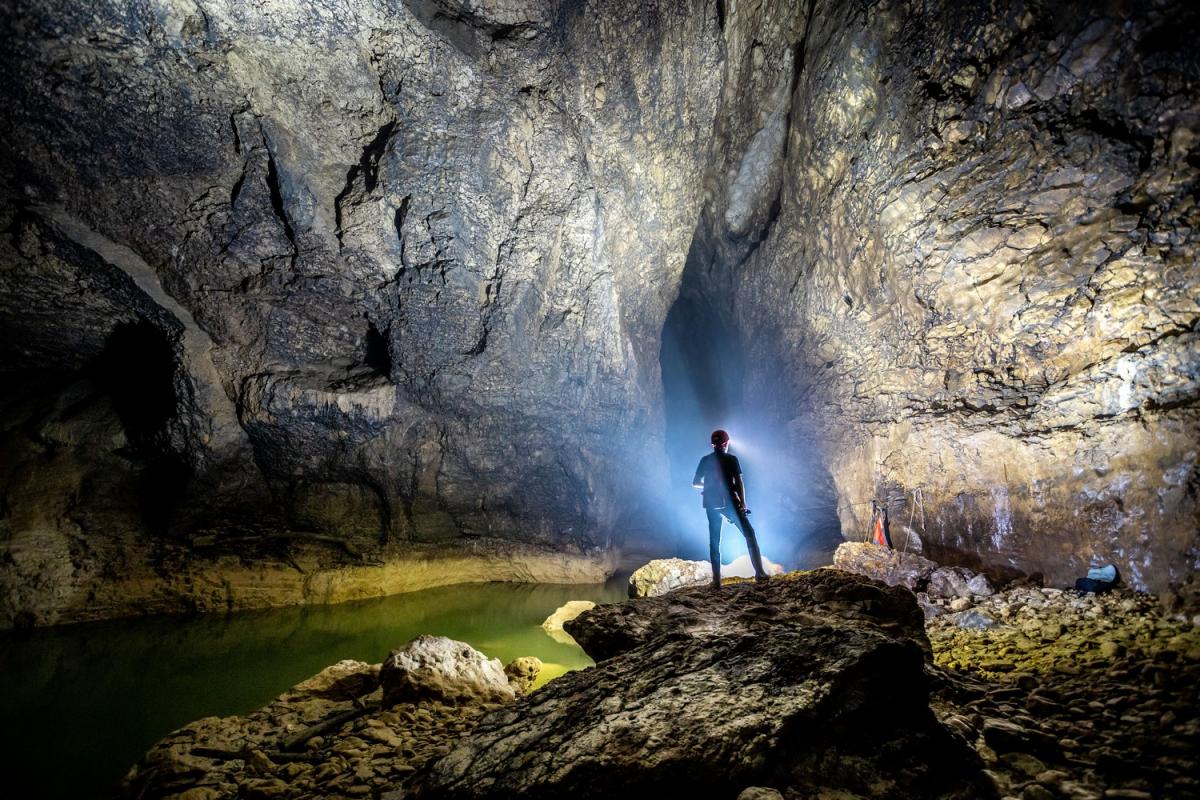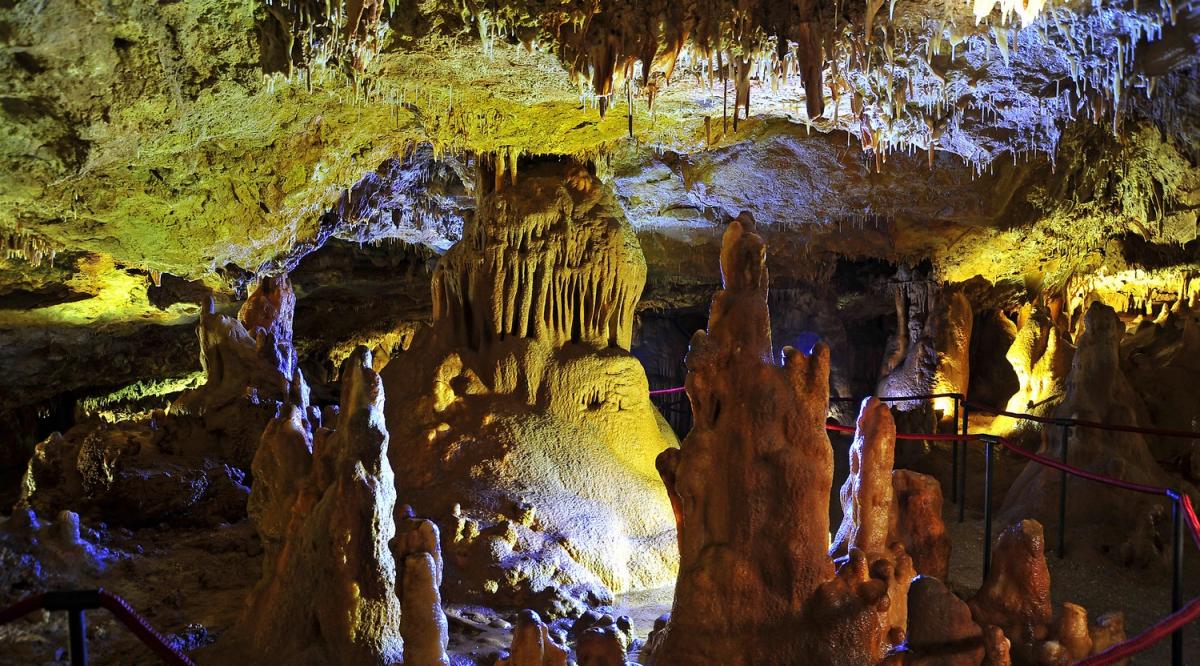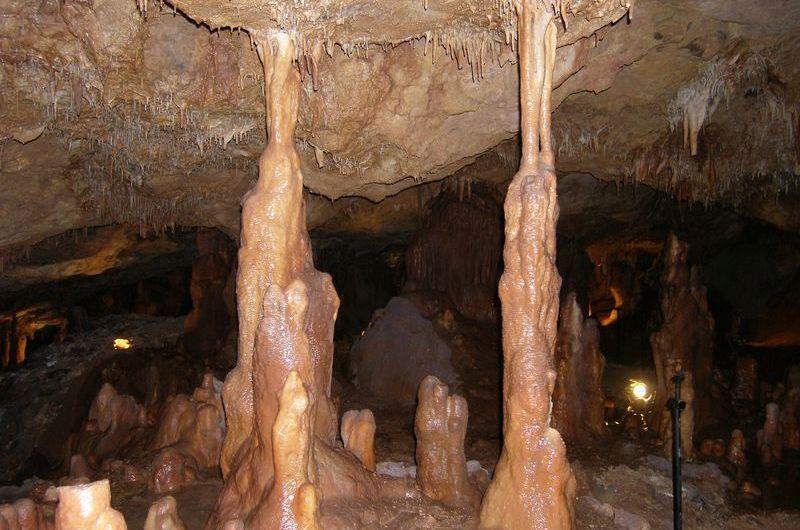Top 5 Mysterious Caves in Istria
If you’d like to feel the adrenalin rush, explore the “unknown” and get to know Istrian legends, we recommend you to visit one or more Istrian caves, whose depths hide unusual shapes and stories from past times.
Filled with stalactites and stalagmites, Istrian caves invite visitors to explore their past, the beauties of the underground which, in low temperatures, especially in summer, bring refreshment. Average cave temperature is between 13°C and 15°C.
Mramornica
Mramornica is one of the biggest caves in Istria, situated by Brtonigla. It was first mentioned in 1770. There are different colour flowstones found inside - from dark red to white - and stalagmites up to 13 meters high. The paths in the cave lead the visitors through this karst beauty in 30 minutes of guided tour. The inside temperature is 14°C which is great in summer heat.
 Baredine
Baredine
Baredine cave, one of the most famous caves in Istria is situated by Nova Vas. It is unavoidable in school group itineraries as well as various other excursions due to the vivid flowstone shapes resembling a statue of the Virgin Mary, Milka - the shepherd, the leaning tower of Pisa and snowman-torchbearer, which has become sort of a mascot of this cave.
Milka the shepherd is a 13-century legend of a nobleman who fell in love with a shepherd. His mother didn’t like her and had her killed. Milka was thrown into the cave while the unfortunate young man mounted his horse and rode away and disappeared. Only the horse was found. The story tells that Milka’s petrified body is still in the cave looking for her loved one.
The interesting thing about Baredine is that you can encounter “human fish” inside the cave, an endemic animal found only in these karst areas.
 The Cave of Pazin
The Cave of Pazin
About a hundred meters below the Pazin castle, passes the biggest Istrian undercurrent Pazinčica. Its water surfaces at the Raša river springs. The cave is protected as significant landscape. The Cave of Pazin can be explored through a 500 meter long trail or, if you’re brave enough, you can look deeper into the interior guided by professional speleologists.
The cave has intrigued many visitors during centuries, like Dante or Jules Verne, especially because it is connected to the Legend of the Count Dragonja – story on the making of the rivers Dragonja and Mirna and the Pazinčica undercurrent.
Come and visit the Cave of Pazin to discover more on this legend...
The cave will surely amaze zip-line enthusiasts who’ll be able to “fly” over it and experience it from above.
 Feštinsko kraljevstvo (The Kingdom of Feštini)
Feštinsko kraljevstvo (The Kingdom of Feštini)
Feštinsko kraljevstvo, situated in the vicinity of Žminj abounds in unusual, interesting shapes which will intrigue the imaginative eye, too. On several paths, it will see the magician’s hat, the Tower of Babel, bat’s wings ... and who knows what else...
The bat’s wings are partly covered in vine’s root which gets water from the bottom of the cave.
The cave was discovered in the 1930s, but then covered. Only later have the neighbouring children started coming to play in the cave they used to call their “kingdom” - where the name originates from.
 Romuald’s Cave
Romuald’s Cave
The cave is situated in the Lim fjord with an accessible approach. It is 105 meters long and straight. Unfortunately, even though its story is very interesting because the former Benedictine Romuald, after building a convent in Kloštar in 1002, decided to live in the cave for 2 years and dedicate to a solitary life, the cave is now closed for all visitors due to protective measures.
Numerous evidence of Early Man has been found in the cave; extinct Ice Age animals bone remains, objects thy used and molars of a younger member of Homo sapiens.
In spring and autumn, the big bat, extinct and protected animal, lives here.
During your stay in Istria, go for a half day excursion to one of the available caves, freshen up and try to discover her secrets during guided tours. We believe it is going to be a completely different view on Istria’s natural beauties wrapped in the aura of mysticism in this underground context.












